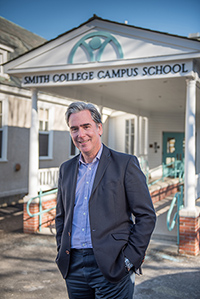Dear Campus School Families,
“Everyone appreciates kindness, but unfortunately our modern education system, with its materialistic goals, doesn’t have much room for inner values. We need to make people more aware of such inner values on the basis of scientific findings, common sense, and common experience.” (Tweet from the Dalai Lama, 12/3/18)
The Dalai Lama is right – the dominant educational models in our country do not leave space for the development of inner values. They are squeezed out by an overemphasis on standardized testing and school as a means to economic utility. However, these values are important for they transcend and unify learning, giving it a higher purpose and ensuring that educated people are also good people. The Campus School approach to education is, at times, countercultural, and we do articulate the importance of several inner values, which are reflected most clearly in our new learning goals.
The most significant is empathy: “students gain insight into the experiences and perspectives of others, leading to actions that are informed and compassionate.” We connect the inner virtue (insight into the experiences and perspectives of others) to the outer action (acting in an informed and compassionate manner), a critical connection for children to make and the development of which is key to a harmonious person and society.
Another important inner value expressed in our learning goals is self-knowledge: “students increasingly understand how their thoughts and feelings influence their actions.” Admittedly, self-knowledge is a lifelong quest, but it needs to start in childhood, which is where children first begin to understand the interrelationship between their emotions, thoughts, and actions.
And other learning goals – from curiosity to open-mindedness – are important inner values. The emphasis on these values is true to one of our most important educational principles – to help develop and educate the whole child. We must help children make the connections between all parts of their lives and experiences – intellectual and emotional, interior and exterior, mind and body. Only then will an education flower in the manner it can – and should.
Warmly,
Chris

